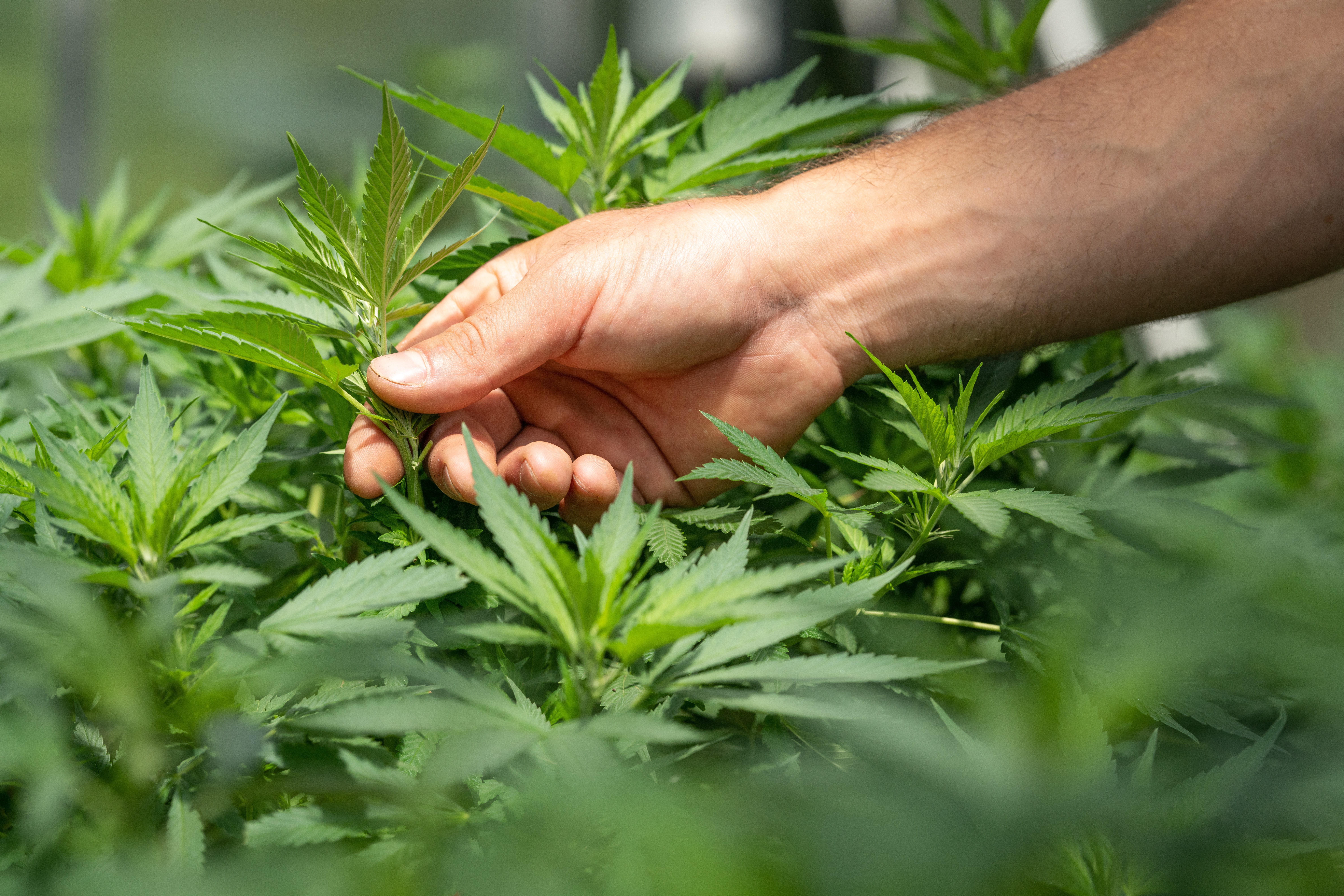CBD has become quite popular in the last couple years because of the vast potential benefits it can bring (to humans and furry companions). Well-known advantages are easing inflammation (many different kinds) and helping with relaxation. There are different products of CBD depending on how you would like to consume it. There are creams for topical application, gummies, coffee, tea, other edibles, and oils and sprays for sublingual application (products designed to be absorbed under the tongue). Unfortunately, there is some misunderstanding about the safety of CBD and its possible side effects in our bodies since CBD comes from cannabis, a plant mostly known to create a “high” feeling (spoiler alert - it’s safer than pretty much any other prescription drug available)
With so many uses of CBD, it isn’t surprising that some products are also created for pets, especially for dogs. The same concerns people have about CBD for people has been expressed about animals and furry companions. How safe is CBD safe for people and pets? What do we know about the legality and safety of CBD consumption for humans and dogs?
Fortunately, Health Canada released a report very recently about the safety of CBD on humans and animals. Read to learn more.
Let’s Talk About Cannabis
Even before cannabis was made legal recreationally, Canadians could access cannabis for medical purposes. Patients were allowed to purchase oils from this with the clearance of a physician or a nurse practitioner. Since the Cannabis Act was approved in October 2018 (further extending the legality for recreational purposes), products with cannabis have been more accessible throughout the country. This act legalizes the use of cannabis even for non-medical usage, enabling people to have up to 30 grams of dried cannabis without needing clearance from a healthcare practitioner, and even allows people to grow their own plants.
In addition to products derived directly from cannabis, the following synthetic prescription medications that have cannabis have also been approved by Health Canada:
- Sativex – has both tetrahydrocannabinol (THC) and Cannabidiol (CBD). It is used for relieving spasticity in adult patients that have multiple sclerosis.
- Cesamet – has a synthetic analogue of THC and is used to treat vomiting and nausea in cancer treatment.
To see the entire list that is for sale in Canada, you can check their Drug Product Database.
CBD for Human Use
Safety
In terms of safety, how much CBD is safe without the oversight of health practitioners? Health Canada states that CBD is safe for amounts from 20mg a day to a maximum of 200mg a day through oral administrations such as oils and capsules. This is advisable for healthy adults, although it is suggested that they still discuss using CBD alongside other medications with their pharmacist or doctor.
Side Effects of CBD
Any natural product or drug may cause side effects, and CBD is no different, although not as severe. Since CBD’s interaction with the body is complex, the impact of this compound may vary from one person to another. There have been reported side effects when administering CBD orally in different doses. It includes the following:
- Decreased appetite
- Low energy/increased relaxation
- Nausea
- Dry eyes and mouth
As alluded to, although these possible side effects may occur, CBD has a much better side effect profile when compared to other drugs, primarily when used for medical conditions, and many people report no ill side effects when trying CBD.
Is CBD addictive?
No, the evidence is pretty conclusive that CBD is not addictive. In fact, some people even use CBD to help them reduce alcohol or opioid consumption (there are some ongoing studies that should be published next year to back this up with science).
Possible Risks to Public Health
There are numerous concerns about the public health risk, such as the unintentional ingestion of CBD by children, using CBD products by understudied populations, and even patients treating their symptoms without consulting a health professional. Although again, most bathroom cabinets have much more dangerous products in them than CBD.
Efficacy
What can it do for you (or your dog)? This is what you are likely most interested in. Determining the efficacy of CBD is important. It helps us understand how some of its claimed benefits are effective and which should be further researched.
To know the efficacy of CBD for human use, Health Canada’s report focused on the following:
- Promoting sleep
- Relieving minor symptoms of nervousness and stress
- Relieving minor pain naturally
These three indicators were established on available information and primary indications based on consumer respondents' observations of Health Canada's 2019 consultation report. Through these indicators, there is early evidence on how CBD can be effective in the short-term treatment of mild symptoms of nervousness and stress, and some limited evidence on promoting sleep and relieving minor pain (more studies are ongoing and should be released soon though).
Post-Market Considerations
Post-market considerations protect consumers and help them communicate about product safety. To start off, the created labels in CBD products encourage consumers to report any side effects that they experience from using CBD. Accessible reporting options should be made for the broader Canadian community.
CBD for Animal Use
Just like humans, there are also products that are available for animal use such as CBD shampoo, oil, and edibles. The focus of Health Canada’s report is on its safety and efficacy on animals, considering more on oil dosage for oral administration for pets since most of the evidence is available in that research.
Safety
The compiled evidence regarding CBD usage for pets concluded that there should be veterinarian oversight for the use for CBD is in dogs and that usage for other animals need further study. Tackling the appropriate dosage one can use on dogs, it is specifically safe in low doses between 0.2-2mg/kg orally twice a day.
Efficacy
How would dogs benefit from using CBD? Sufficient research and evidence show that Cannabidiol can help treat osteoarthritis pain in dogs. There is also evidence of CBD relieving other chronic pain in your canine companion. With the safety confirmation on these treatments, exact dosages may still need further consultation with veterinarians.
Suitability
Can CBD be used for dogs without the oversight of a veterinarian? According to the report, they recommend consulting with a vet until more data about the safety and efficacy of CBD on dogs is obtainable. This data should consist of proper dosage in specific cases and possible interactions of CBD with other drugs.
To comply with this recommendation for fur-parents, Health Canada further recommended that CBD products for pets only be sold in vet clinics (although we know several people who have used CBD oil purchased through licenced recreational stores on their pets…but that can be discussed in another article). Other conditions when selling CBD for animal usage is that it must be sold in boxes with precise details about the dosage and how it can only be used if a veterinarian diagnoses your animal’s condition.
Another crucial piece of information you should remember is that dogs with impaired liver function, severe heart disease, or dogs that are lactating, breeding, pregnant, or immature should not use any CBD product for their safety.
Conclusion
Knowing more about CBD safety for you and your pet is crucial before deciding to purchase and use these products. The goal of Health Canada’s report is to support your access to non-prescription CBD products while also preventing self-medicating complications for you or your pets.
Research will always be continuous. This is why the review created will evolve as more information about CBD develops to be more updated and aware of how CBD can further help you and your dog’s wellbeing.





